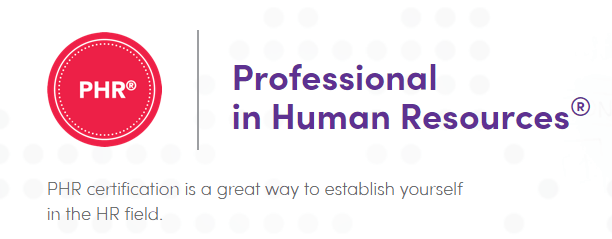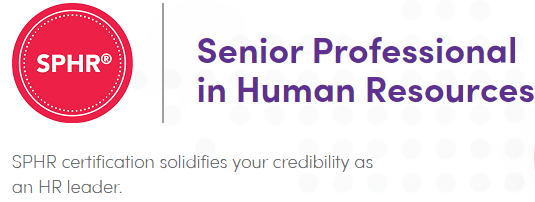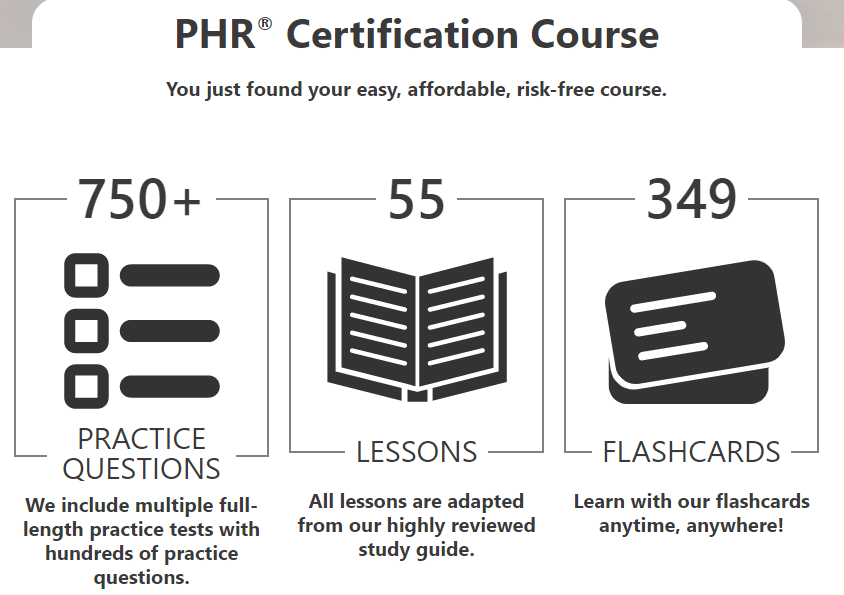Today’s talent market is more competitive than ever, making it difficult to stand out in the job market. More and more HR professionals are relying on Human Resources certifications to find an edge. Additionally, the certificate offers opportunities for career advancement and salary increment. This guide takes you through everything you might need to know about Human Resources certification.
What is Human Resources Certification?
Human resources certification is a designation offered to HR professionals, proving the individual has acquired the relevant knowledge and skills to perform their job. Human resources certification may be obtained in addition to or in place of advanced degrees. Two major HR membership organizations are offering certification are:
The HR Certification Institute (HRCI). This institute has been offering certification for more than 40 years. The organization has a presence in over 100 countries and has certified more than 500,000 HR professionals. HRCI offers at least eight different certifications, some of which we’ll discuss in the next section.
The Society for Human Resource Management (SHRM). The Society is the largest Human Resource membership organization focusing on professional development. The organization launched its certification program in 2014 and currently offers two types of HR certifications.
The Basics of HR Certification
It is not always obvious which HR certification you should choose. Understanding major types of HR certifications, their requirements, and who they are for should help clear up most of this confusion.
Associate Professional in Human Resources (aPHR)

The HRCI offers the Associate Professional in Human Resources (aPHR) as an entry-level certification for beginners. Part of this certification’s appeal is its broad rather than in-depth approach to HR. Learners get familiar with a wide range of core HR concepts, including recruitment and selection, operations, employee relations, health, safety and security, and compensation and benefits.
The aPHR also doesn’t have education or HR experience requirements, making it perfect for those just starting out in their career. The aPHR exam takes 2 hours and 15 minutes and covers 25 pretest questions and 100 exam questions. Most of these questions are multiple-choice.
The certification is valid for three years. You’ll need to earn 45 recertification credits within three years to maintain your accreditation.
You can apply to take the exam online or at a test center near you. The exam is available all year round and costs $100 to apply and an additional $300 exam fee.
Professional in Human Resources (PHR)

The Professional in Human Resources is considered a step up from the aPHR and is another offering from the HR Certification Institution. If you are an HR assistant or administrator looking to improve your career trajectory, this certification is well worth looking into.
This certification tackles a combination of technical and operational HR management concepts, including business management and U.S. laws and regulations. The eligibility requirements are a little steeper than the aPHR and include:
- A Master’s degree or higher and at least one year of experience as an HR professional
- A Bachelor’s degree and at least two years of professional experience
- At least four years of experience as an HR professional
You only need to meet one of the conditions mentioned above you qualify to take the test. The examination comprises 25 pretest questions and 90 scored questions. Once more, most of these questions are multiple choices. You’ll have two hours to complete the exam.
The PHR will cost you a $100 application fee and a $395 exam fee. To remain certified, you’ll need to earn at least 60 recertification credits in three years. You can earn these credits by attending approved webinars, conferences, and online resources.
Unlike the aPHR, where you’ll see little or no impact on your salary, you might see a slight pay boost with the PHR.
Senior Professional in Human Resources (SPHR)

If you have your sights set on senior HR positions such as vice president, director, or CHRO, the Senior Professional in Human Resources designation should help get you there. This is the highest level certification that the HRCI offers U.S.-based professionals.
The SPHR focuses mainly on strategic and policy-making concepts. You’ll need to meet one of the following requirements to be eligible to take the exam:
- Master’s degree or higher and at least four years of experience as an HR professional
- A Bachelor’s degree and at least five years of experience as an HR professional
- Have at least seven years of experience as an HR professional
The exam takes 2 hours and 30 minutes, covering 25 pretest questions and 155 scored questions. You’ll need to pay an application fee of $100 and an additional $495 exam fee. You’ll also need to earn 60 certification credits in three years to retain your designation.
Research from Payscale reveals professionals with SPHR designation average a 9.7% pay boost.
SHRM Certified Professional (SHRM-CP)
Outside of designations offered by the HRCI, the SHRM Certified Professional is an excellent certification for newcomers in the field looking for advancement opportunities. The Society for Human Resource Management (SHRM) offers this certification as an alternative to the PHR.
The PHR and SHRM-CP are similar in a lot of ways, but there are some discernible differences. While the PHP focuses more on subject-matter knowledge, the SHRM-CP focuses more on competency and intangible HR Skills.
To qualify to take the test, you’ll need to meet one of the following requirements:
- Three years of experience in an HR role if you’re currently enrolled in an HR-related program or four years experience in an HR role if you’re currently enrolled in a non-HR program
- One year of experience in an HR role if you have an HR-related Bachelor’s degree or two years of experience in an HR role if you have a non-HR Bachelor’s degree
- Currently in an HR role if you have an HR-related Graduate degree or one year in an HR role if you have a non-HR Graduate degree
The SHRM-CP exam takes four hours to complete. It comprises 95 knowledge items and 65 situational judgment items. There are a total of 160 questions in this exam. You’ll need to pay $375 if you are an SHRM member or $475 if you’re not a member.
The SHRM offers two slots to take the exam, Spring and Winter. The spring slot starts from January 4 to May 18. The winter slot begins on June 1 to November 9.
According to Payscale, professionals with SHRM-CP designation receive an average of 3.9% pay increment.
SHRM Senior Certified Professional (SHRM-SCP)
Also offered by the SHRM, the Senior Certified Professional designation is the next step up from the SHRM-CP. This certification is widely sought after by high-level HR professionals, including HR managers looking to further their careers. If you’d like to transition to a senior leadership position, this designation increases your chances of advancement.
To be eligible to take the exam, you must:
- Have at least six years of experience in an HR role if you are currently pursuing an HR-related program, or seven years of experience in an HR role if you are pursuing a non-HR program
- Have at least four years of experience in an HR role if you have an HR-related Bachelor’s degree or at least five years in an HR role if you have a non-HR Bachelor’s degree
- Have at least three years of experience in an HR role if you have an HR-related Graduate degree or at least four years of experience in an HR role if you have a non-HR Graduate degree
The exam has 160 questions which include 65 situational judgment items and 95 knowledge items. It costs $375 if you’re an SHRM member and $475 if you’re not a member. You get $75 off the price if you apply to take the exam before April 2 for the spring testing window or October 15 for the October testing window.
HR professionals with the SHRM-SCP designation see an average of 5.7% pay boost, according to Payscale.
3 Tools to Improve Your Human Resource Certification Journey
Taking an HR certification exam can seem like a daunting task. However, it will be well worth your while. HR certification helps with career development, improving your knowledge and skills, and increasing your pay. Below are three critical tools to make your certification journey easier.
1. Human Resources Body of Knowledge Guidebooks
Whether you plan to take the HRCI or SHRM tests, it’s helpful to go through the HR body of knowledge guidebooks.
The SHRM Body of Competency & Knowledge (BoCK) covers the critical HR knowledge, and behavioral competencies professionals need to perform their duties. The BoCK lays out eight behavioral competencies, including Ethical Practice, Consultation, Relationship Management, Business Acumen, and Critical Evaluation. The 15 HR knowledge areas covered in the guide include Structure of the HR Function, HR Strategic Planning, Employee & Labor Relations, and Diversity & Inclusion.
A Guide to the Human Resource Body of Knowledge (HRBoK) is another exceptional resource if you are planning to take the HRCI tests. Notably, this guide includes all the core knowledge requirements covered in HRCI exams. The HRBoK zeroes in on six key areas of HR functional expertise, including Workforce Planning and Employment, Business Management and Strategy, Human Resource Development, Employee and Labor Relations, and Compensation and Benefits.
Consider reading both guides thoroughly. Each body of knowledge takes a slightly different approach to Human Resource management, offering a broader perspective on the subject.
2. PHR Certification Course by Mometrix

If you’re planning on taking the PHR exam and don’t want to take any chances, Mometrix Study Guide offers a comprehensive program to help you pass your exam. The online course covers all the knowledge areas that will be covered in the exam, including:
- Business Management
- Talent Planning and Acquisition
- Learning and Development
- Total Rewards Employee and Labor Relations
Mometrix also comes with a full suite of supporting features, including test-taking strategies, secret keys to passing the PHR exam, course feedback, flashcards, lesson reviews, and practice tests. The course costs $99.99 per month. You get a seven-day money-back guarantee in case you are not happy with the course.
3. Certification Handbooks
All accrediting bodies have a procedures handbook to help you prepare for the technical details of the examination. Download the HRCI Certification and Procedures Handbook or the SHRM Certification Handbook, depending on the exam you plan to take.
These detailed handbooks contain extensive details about the certification process, including how to book exams, how and when to pay, exam schedules, eligibility verification, exam appointment cancellations, and exam transfers.
6 Tricks for Passing Your HR Certification Exam
If you’re finally ready to earn your HR certification, below are some practical tips to increase your chances of passing your exam on the first try.
1. HRCI vs. SHRM Certification
The Society of Human Resource Management (SHRM) and the HR Certification Institute (HRCI) are two competing accreditation bodies. Both are reputable and highly regarded, but the HRCI is often the better option.
For one, the HRCI offers more certification options than the SHRM. Aside from the certifications laid out in a previous section, the HRCI also provides:
- Associate Professional in Human Resources, International (aPHRi)
- Professional in Human Resources, International (aPHRi)
- California Professional in Human Resources (PHPca)
- Senior Professional in Human Resources, International (SPHRi)
- Global Professional in Human Resources (GPHR)
On the flip side, SHRM certification comes with plenty of professional development resources. These include access to networking, resources, training, and mentorship.
Still, most HR experts agree that neither option holds a decisive advantage. The choice mostly boils down to personal preference. Some people even prefer to go for both accreditations.
2. Create a Study Schedule
Create a clear study schedule well in advance of the exam. It takes most people at least 45 days to prepare adequately for the exam. Create a detailed weekly or daily schedule and follow through with it. The more regularly you study for the test, the more you increase your chances of acing the exam.
A few hours of daily studying course materials, watching videos, and taking practice tests can go a long way in preparing you for the exam.
Finally, consider taking full-length practice tests closer to the exam date. This exercise will help you prepare mentally for the long exams.
3. Join a Study Group
A study buddy or a study group can help to keep you accountable to your study schedule. Additionally, you get to meet HR professionals in various stages of their careers. HR certification exams draw a lot from real-world work experience in addition to knowledge bodies. Gaining perspective from different professionals can help, particularly with situational judgment items.
4. Get Familiar With the Exam
At the very least, find out what will be in the exam you plan to take. This includes the topics covered, number of questions, time limit, and format (such as multiple-choice questions). Practice tests are great for giving you an accurate picture of what to expect on exam day. Also, the SHRM and HRCI websites offer a full breakdown of their exams and what to expect.
5. Evaluate Your Learning Style
Even the best study schedule can be inefficient if it doesn’t match your learning style. Everybody learns at a different pace and using different methods. Think back to your most successful study sessions and apply the same principles when studying for your HR certification exam.
For example, some people study better with audio, such as webcasts, while others prefer flashcards. Study tools like Mometrix combine different learning formats to cater to varying learning styles.
6. Prepare for the Exam Day
Prepare adequately for the exam day to minimize potential hiccups. If you are taking the exam at a testing center, plan your route in advance. It also helps if you visit the center in advance to familiarize yourself with the place.
If taking the test online, test your system to make sure everything works as it should. Be sure to read the test’s technical requirements to ensure that your equipment complies with the requirements.
What to Do Next
You’ll get your test results immediately after you complete your examination. The actual certification takes a few weeks in most cases. It’s a proud moment in any professional’s career, but there is more work to do.
The next natural step is to maintain your accreditation. In most cases, your certification is only valid for three years. You’ll be required to earn between 30 and 60 recertification credits during this time, depending on your accreditation. You earn these credits by attending seminars and conferences, contributing resources towards HR profession advancement, and volunteering.
Be sure to log your credits carefully and keep your information up to date. Both accreditation bodies offer online platforms where you enter your credits. Alternatively, you can choose to retake the exam every three years to maintain your accreditation.
from Quick Sprout https://ift.tt/2Urk1pu
via IFTTT
No comments:
Post a Comment